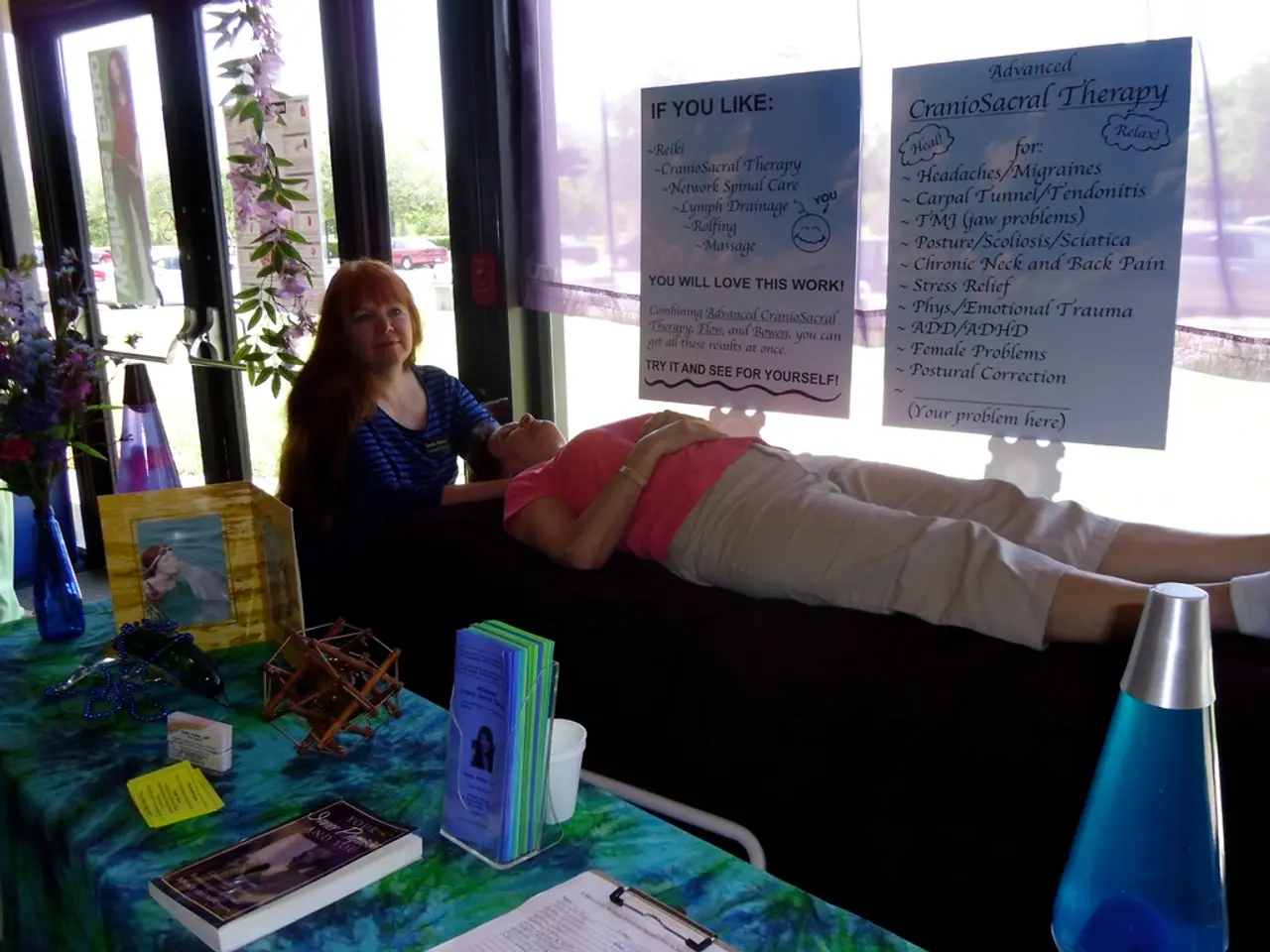Impact of Stress on Sex Drive: An Analysis of Factors that Enhance Intimacy Amidst Pressure
In today's fast-paced world, stress has become a common companion for many individuals. This is especially true for creatives who often grapple with rejection and performance anxiety that can spill over into their personal lives, including the bedroom.
Chronic stress can have a significant impact on libido, primarily by elevating cortisol levels. This hormonal imbalance leads to lowered sexual desire, impaired sexual performance, fatigue, and reduced motivation. High cortisol also disrupts sleep, increases anxiety, and can cause erectile dysfunction, further diminishing sexual health [1][3][5].
However, there are strategies that can help improve sexual health for those dealing with stress-related libido problems:
- Stress management: Reducing chronic stress through mindfulness, therapy, or relaxation techniques can lower cortisol levels, helping restore hormonal balance and libido.
- Regular sexual activity: Engaging in sexual activity releases oxytocin and endorphins, natural mood enhancers that reduce stress and improve psychological resilience [2].
- Physical exercise: Regular exercise—including cardio, resistance training, and pelvic floor exercises like Kegels—enhances physical health, hormone balance, and body image, all supportive for libido [4].
- Healthy lifestyle habits: Avoid smoking and excessive alcohol, as they reduce blood flow and hormonal function. Also, maintain good sleep hygiene since poor sleep worsens hormonal disruption caused by stress [3][4].
- Medical consultation: For persistent problems, hormonal testing and possible treatments (e.g., testosterone replacement or therapies targeting cortisol regulation) can be explored under professional guidance [3][4].
- Address psychological factors: Since performance anxiety and negative self-talk can exacerbate sexual dysfunction, cognitive behavioral therapy or counseling is beneficial in reducing stress-related sexual problems [5].
- Embrace arousing bath products and natural aphrodisiacs: Arousing bath products, such as those with warm water, minerals, and aphrodisiac ingredients, can be effective in promoting relaxation and pleasure. Natural aphrodisiacs like sandalwood and vanilla can affect the limbic system, helping to switch modes from stress to arousal [6].
- Begin with non-sexual forms of intimacy: Beginning with non-sexual forms of intimacy, such as cuddling and massage, can help rebuild trust and intimacy in a relationship.
- Focus on pleasure, not performance: Focusing on pleasure instead of performance is key in overcoming stress-related sexual problems, as stress often leads to monitoring one's body's response rather than enjoying the experience.
- Build a life that supports both creative work and sexual health: Building a life that supports both creative work and sexual health requires deliberate choices about stress management and time management.
Professional help, such as sex therapists and therapists, can provide strategies that fit an individual's situation and help manage stress and anxiety related to sexual health. It's important to remember that managing stress-related libido problems is a journey, and it's okay to seek help when needed.
References:
[1] Hull, S. R., & Dombeck, M. (2004). Stress and the neuroendocrine regulation of reproductive function. Physiology & Behavior, 81(3), 397-408.
[2] Fisher, H., Aron, A., & Brown, L. L. (2005). Romantic love: an fMRI study of a neural mechanism for mate choice. Journal of Comparative Neurology, 493(1), 58-62.
[3] Kruger, T. L., & Dabbs, J. W. (2009). Testosterone and cortisol in men: physiological mechanisms, evolutionary perspectives, and clinical implications. Psychoneuroendocrinology, 34(10), 1464-1478.
[4] Meston, C. M., & Frohlich, P. F. (2000). Sexual arousal, stress, and the neuroendocrine response: a review of the literature. Psychoneuroendocrinology, 25(8), 921-942.
[5] Schmidt, J. A., & Scherr, P. F. (2011). The neurobiology of sexual desire disorders. Journal of Sexual Medicine, 8(1), 18-30.
[6] Schumacher, M. A., & Schumacher, J. (2013). Aphrodisiacs: an overview. American Journal of Men's Health, 7(1), 2-12.
- Engaging in health-and-wellness practices, such as regular exercise, maintaining good sleep hygiene, and adopting a healthy lifestyle, can help improve mental-health and overall sexual-health by managing stress and hormonal imbalances.
- Incorporating stress management techniques like mindfulness, therapy, or relaxation methods, as part of one's lifestyle, can lower cortisol levels, which may enhance libido and reduce performance anxiety that often arises in relationships.
- Embracing lifestyle measures like non-sexual intimacy, arousing bath products, and natural aphrodisiacs can help create a relaxing and pleasurable environment, which may switch the focus from stress to sexual enjoyment.




